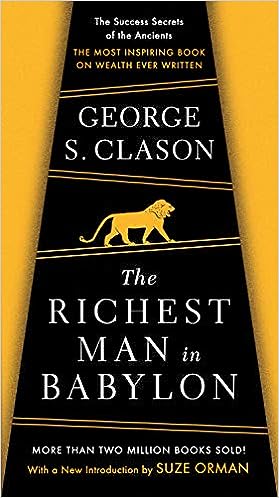
BiggerPockets experts, like our Money Podcast co-host Mindy Jensen, adore this quick read. It’s only 144 pages and can easily be read in a single day or two.
The Richest Man in Babylon highlights a powerful personal finance principle: paying yourself first. Author George S. Clason walks you through a few simple, relatable stories to explain how to get out of debt while still paying yourself.
Clason goes on to point out that saving for saving’s sake is not enough. You need to save to invest.
So once you’ve gotten yourself out of debt and started paying yourself first, you can begin investing those savings.
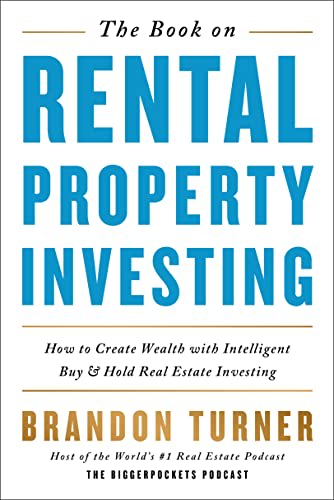
Who could be better positioned to give first-rate real estate investing advice than Brandon Turner? Turner gives clear instructions on the most important aspects of rental investing, from finding and analyzing properties for investing to building a team and finding sources of funding for your first investment.
The book also covers practical aspects of rental property management, such as tenant screening, lease agreements, property maintenance, and legal considerations.
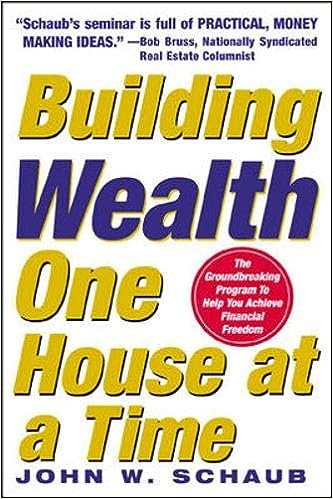
Schaub shows how you can build a fortune and achieve everything you want in life by investing in little real estate deals like single-family houses and small multi-units.
He also discusses real estate appreciation and how it can make you rich. However, be careful depending upon appreciation as part of your real estate evaluation. Appreciation is uncertain and difficult to predict or depend upon.
A more conservative plan is to make enough money using other methods John talks about, like cash flow and amortization of loans. Appreciation may come, but your deal should work without it.
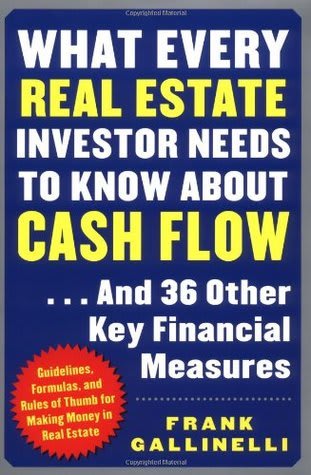
This book explains both big-picture concepts, such as deal analysis and nitty-gritty formulas. It covers just about every analysis tool in great detail, along with examples. Beginners will learn a ton; any investor of any experience level should keep it on their bookshelf as a reference and refresher.
Frank also includes free Excel spreadsheets that let you get “under the hood” and see how the formulas in the book actually work.
However, this book’s strength—and weakness—is its thoroughness. Beginners may risk being overwhelmed or intimidated by many formulas and analysis methods. Yes, math is important for investors—but so are psychology, momentum, and consistency. Fear of failure or analysis paralysis can kill your investment dream.
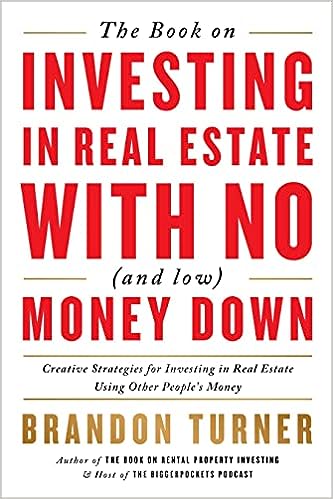
The title includes “no money down,” which might (understandably) be a turn-off. But realize that the book is not about getting rich quickly with tricks or buying something for nothing. The book simply provides a full toolbox of real estate financing techniques.
You can always use more conventional strategies—go to the bank, put 20 percent down, and take out a conventional loan if you want. But do yourself a favor: Learn how to make money outside of traditional lending. That way, the rest of this real estate game will be a lot easier.
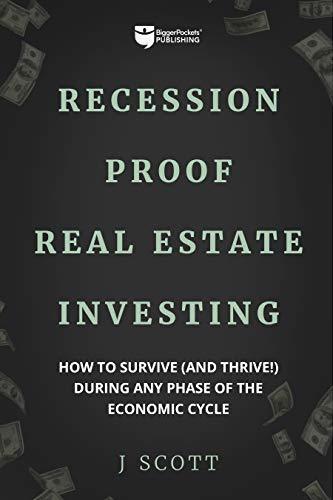
In uncertain times, smart investors begin to plan for a possible recession and look for ways to safeguard their investments.
Even though Recession-Proof Real Estate Investing was written with the 2008 recession in mind, its lessons still very much ring true today should the economy move towards a downturn. If you’re looking for peace of mind amidst the panic, read this book. You’ll walk away armed with information on economic shifts, why they happen, and the strategies most likely to help you survive (and even thrive) during a recession.
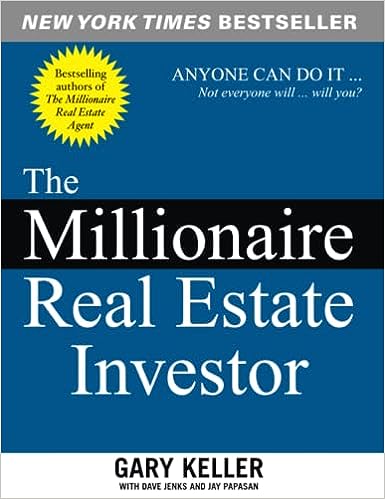
Mike Summy says this book is “filled with practical, workable advice for anyone wanting to build wealth.” We couldn’t agree more. Super-easy to read, this book relies not just on the author’s own experience building wealth in real estate but on those of over 100 self-made investor millionaires. The book is equally useful as a source of practical advice and as a source of inspiration. It teaches you how to get into the right mindset to achieve investment success and then explains how to put your newly-found confidence into practice. It is suitable for beginners or investors struggling to take their business model to the next level.
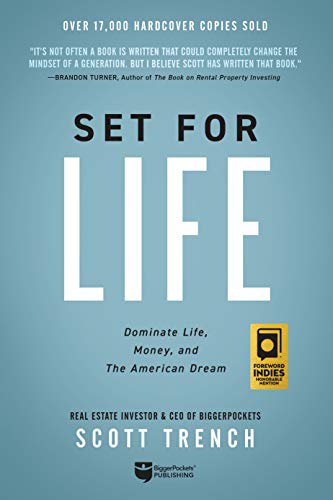
Now that you are paying yourself first and making your money work for you, what should your first investment be? A house hack, of course!
Set For Life by Scott Trench, CEO of BiggerPockets, illustrates how to go from $0 in net worth to financial independence in three clear, repeatable steps:
- Create $25,000 in savings by being frugal and efficient with your money.
- Go from $25,000 to $100,000 in net worth by house hacking, which eliminates your housing cost. Additionally, find ways to increase your income, such as earning bonuses and commissions at your job or taking on side hustles.
- Reach financial freedom by becoming a savvy investor and tracking your progress. There are a number of different ways to invest your money, including buying stocks and purchasing rental properties. Scott outlines both of these investment vehicles and highlights the advantages and disadvantages of each.
No matter how you invest, you must track your progress. Know your spending, track your investments, and take action to optimize both.

Brandon and Josh detail a number of real estate investment strategies, such as BRRRR investing, fix and flipping, wholesaling, and even apartment investing.
Brandon and Josh provide actionable advice and effective strategies from their own experience—plus the experiences of 300-plus guests on the BiggerPockets Podcast. Seriously, there may not be another book out there that does a better job of describing all the ways you can invest in real estate.
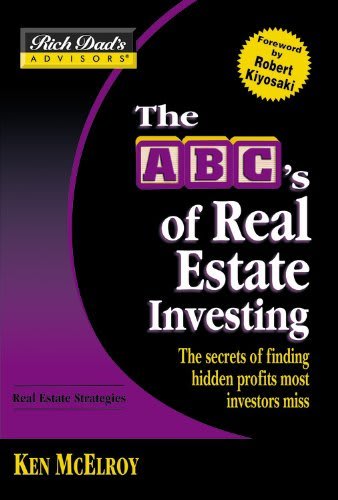
Written by the seasoned investor Ken McElroy, The ABCs of Real Estate Investing is one of the definitive guides to growing your real estate investment business. It was written with the help and insight of some of the most successful real estate business owners and has an especially useful section on investment myths busting. It’s also invaluable for anyone who wants to learn how to choose properties with real investment potential or needs effective strategies for managing a growing portfolio.
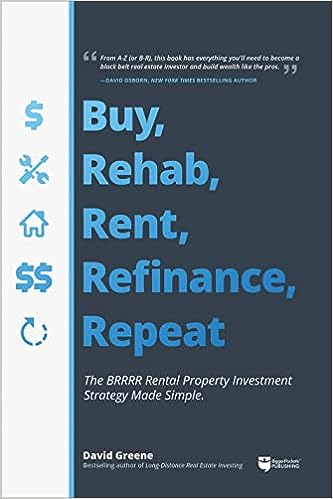
Ever heard of BRRRR? David Greene’s clear, practical guide to this popular real estate investing model will show you how to build a real estate investment business that delivers returns in years, not decades. Moreover, the book comes with useful additional materials to get you started quickly.

Sometimes the best way to learn how to do something is by learning what not to do first. This engaging and entertaining account of investment strategies gone wrong finds a relatable way to teach budding investors to avoid the common pitfalls of poor planning, choosing investment properties incorrectly, or mismanaging their finances.
It helps that the book is easy to read, too, written by Pusterjovsky, who has written about real estate for Huffington Post, Business Insider, and other nationwide publications.
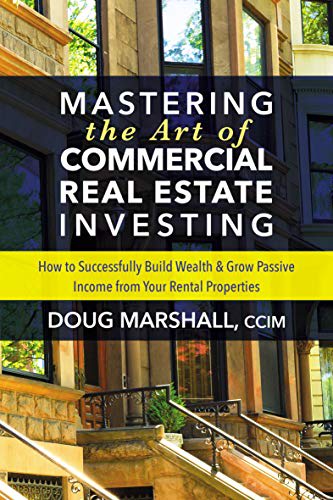
With over 30 years of experience in real estate investing, Doug Marshall is well-placed to advise budding real estate entrepreneurs. From this thorough introduction to real estate investing, you’ll learn the fundamentals of the business. From the six basic laws of making a sound investment to timing your buying activity right, Marshall gives step-by-step instructions anyone can follow. You don’t need any prior experience to benefit from the insights in this brilliant guide.
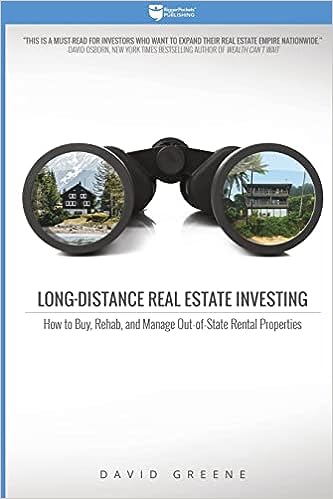
Want to live out of state and still reap the rewards of real estate investing? This invaluable, specialized guide will tell you how. David Greene, host of the BiggerPockets Real Estate Podcast, has built his own impressive real estate portfolio by buying out-of-state properties, often without ever having seen them. He outlines the rules for choosing locations and properties that will give you returns and how to avoid some of the most common pitfalls when investing in areas where you don’t live. A must for the modern property entrepreneur.
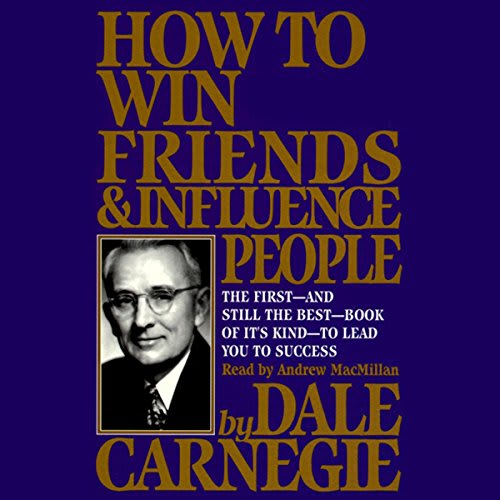
Dale Carnegie’s bestselling book is so much more than a guide to being a successful businessperson. It has transformed countless people’s personal lives, too. From effective communication strategies to leadership skills, this book will set you up for a life of professional and personal success. So, the next time you negotiate a deal, you can be prepared with behavioral tips that work in your favor.

If tax season leaves you feeling frustrated at the amounts you end up paying, you need this book. Actually, every real estate investor needs this book because understanding tax and how you can save on taxes is an essential aspect of running an investment business.
The best part? Han and MacFarland teach you how to plan for your taxes in advance, which makes it easier to strategize and save.
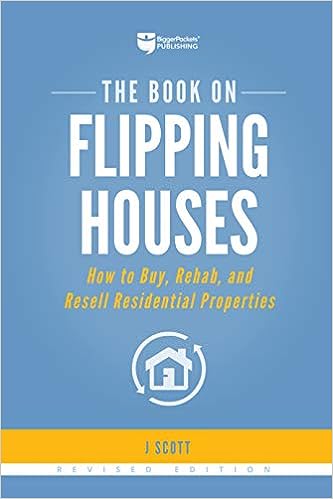
We like the way the author, J Scott’s mind works. But we bet beginner flippers will love him too—he is systematic, thorough, and understands both the big picture and the details. That’s rare!
This book is a comprehensive guide to the home flipping business. J also dives into the nuances of analyzing and choosing a target market. Many novices miss this fundamental step.
Use his insight to analyze your own market for potential flips—or any future markets you may venture into.
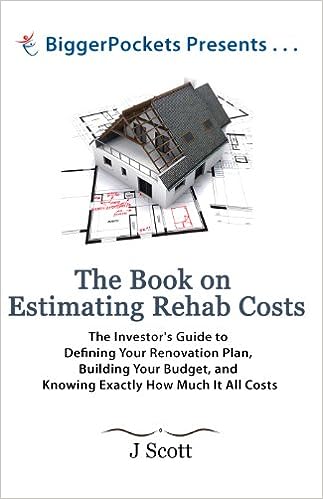
Now that you’re well-versed in the basics, dive into flipping finances with this second excellent offering from J. This book, too, is systematic and thorough. It flows well, and you can take the concepts and apply them successfully right away.
We love the way J Scott sections house rehab into 25 components, which makes estimating a flip’s total cost much more accurate. After all, missing just one or two repairs can make a big difference in your profits—so using a system like J’s is critical. Why reinvent the wheel? J wrote the book. Just copy him.
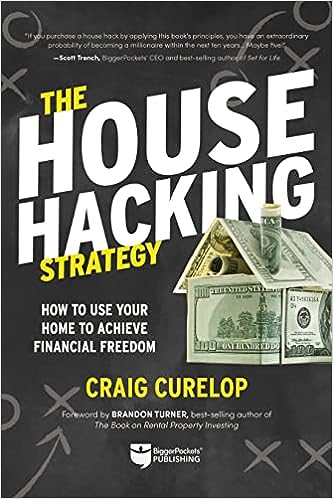
Curelop explains how house hacking works, what types of properties are best suited for this strategy, and how to finance the purchase. He also covers the various expenses and risks associated with owning a rental property, as well as the tax implications of renting out a portion of your home.
The book includes real-life case studies and examples of successful house hackers who have used this strategy to achieve financial freedom. Overall, The House Hacking Strategy is a practical guide for anyone interested in real estate investing and looking for an alternative way to generate income and build wealth.

The book covers a wide range of topics related to real estate investing, including understanding the key metrics used to evaluate properties, analyzing market trends, and using financial modeling tools to forecast investment outcomes. The authors emphasize the importance of using data-driven strategies to minimize risk and maximize returns in real estate investing.
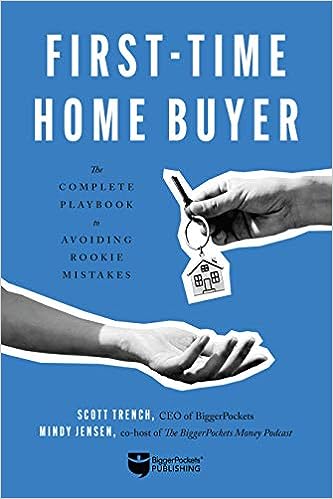
The authors emphasize the importance of being financially prepared for homeownership and provides strategies for saving money for a down payment, improving your credit score, and minimizing debt. They also advise readers to approach home buying as a long-term investment and to consider factors such as future market trends, property values, and potential for resale.
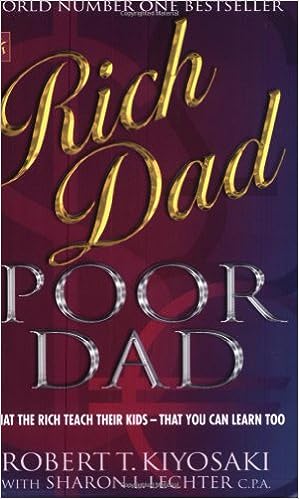
Author Robert Kiyosaki outlines a number of ways the rich separate themselves from the poor by sharing stories about an actual rich dad and a poor dad in his own life.
The “rich dad” is a friend’s father, who is a successful entrepreneur in Hawaii. The “poor dad” is his actual father, who works a job and makes good money but never buys any assets and ends up never accumulating wealth.

There can’t possibly be anything left to learn about becoming a successful real estate investor. Right? Yes, by now, if you’ve read all of the books before this one, you have all the tools necessary to invest and start to skyrocket your net worth—but there’s still one thing you should learn how to do. Create systems for your business so that it can grow and scale without you having to manually do all the work.
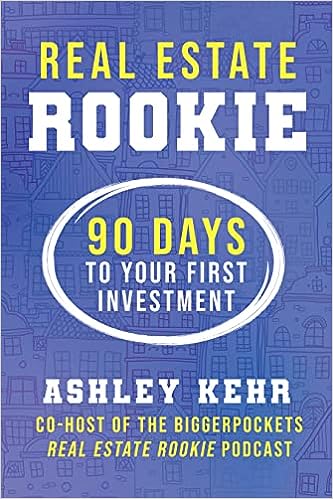
The book covers topics such as finding and analyzing deals, financing options, building a team, and managing rental properties. Kehr draws on her own experiences as a real estate investor and shares practical advice and strategies for those who are new to the field. The book also includes case studies and real-life examples to help readers understand the concepts and apply them to their own investing journey.
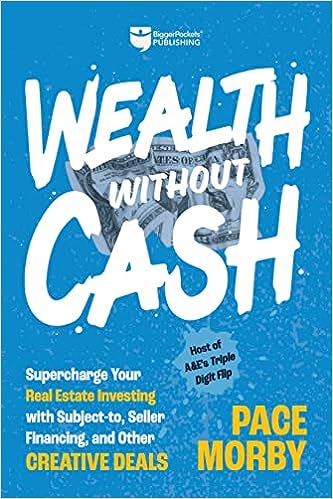
This is the latest addition to the BiggerPockets bookstore. Wealth Without Cash is a comprehensive guide that takes you through the world of creative financing strategies, enabling you to close real estate deals faster and at a fraction of the traditional costs. Morby’s book dives deep into various innovative approaches, including seller finance and subject-to deals, which have played a pivotal role in his own success story. By implementing these strategies effectively, you can acquire properties and build a substantial investment portfolio without the need for significant personal capital.

 The Richest Man in Babylon
The Richest Man in Babylon The Book on Rental Property Investing
The Book on Rental Property Investing Building Wealth One House at a Time
Building Wealth One House at a Time What Every Real Estate Investor Needs to Know About Cash Flow
What Every Real Estate Investor Needs to Know About Cash Flow The Book on Investing in Real Estate With No (and Low) Money Down
The Book on Investing in Real Estate With No (and Low) Money Down Recession-Proof Real Estate Investing
Recession-Proof Real Estate Investing The Millionaire Real Estate Investor
The Millionaire Real Estate Investor Set For Life
Set For Life How to Invest in Real Estate
How to Invest in Real Estate The ABCs of Real Estate Investing
The ABCs of Real Estate Investing Buy, Rehab, Rent, Refinance, Repeat
Buy, Rehab, Rent, Refinance, Repeat Real Estate Investing Gone Bad
Real Estate Investing Gone Bad Mastering the Art of Commercial Real Estate Investing
Mastering the Art of Commercial Real Estate Investing Long-Distance Real Estate Investing
Long-Distance Real Estate Investing How to Win Friends & Influence People
How to Win Friends & Influence People The Book on Tax Strategies for the Savvy Real Estate Investor
The Book on Tax Strategies for the Savvy Real Estate Investor The Book on Flipping Houses
The Book on Flipping Houses The Book on Estimating Rehab Costs
The Book on Estimating Rehab Costs The House Hacking Strategy
The House Hacking Strategy Real Estate By The Numbers
Real Estate By The Numbers First-Time Home Buyer
First-Time Home Buyer Rich Dad Poor Dad
Rich Dad Poor Dad The 4-Hour Workweek
The 4-Hour Workweek Real Estate Rookie
Real Estate Rookie Wealth Without Cash
Wealth Without Cash